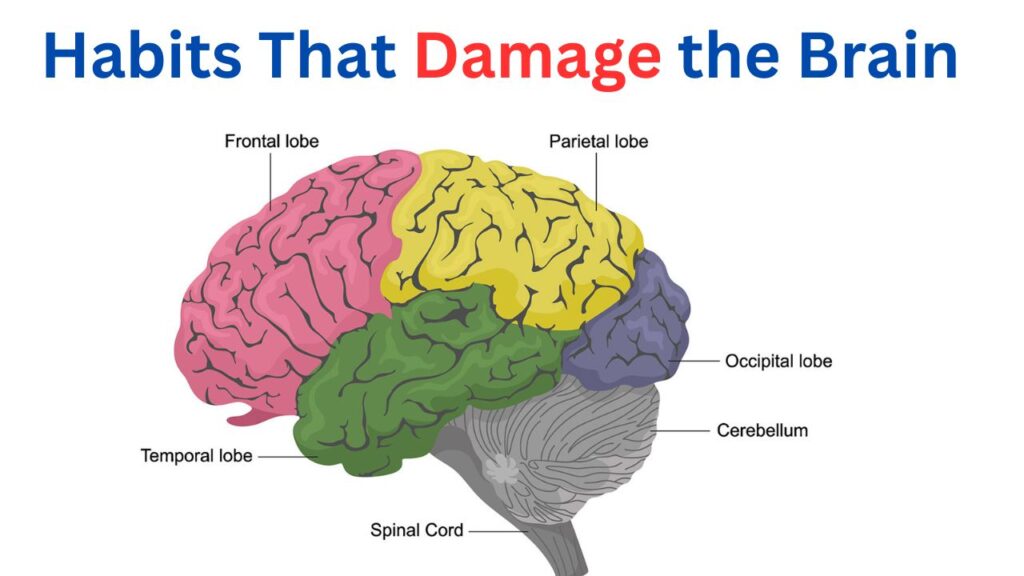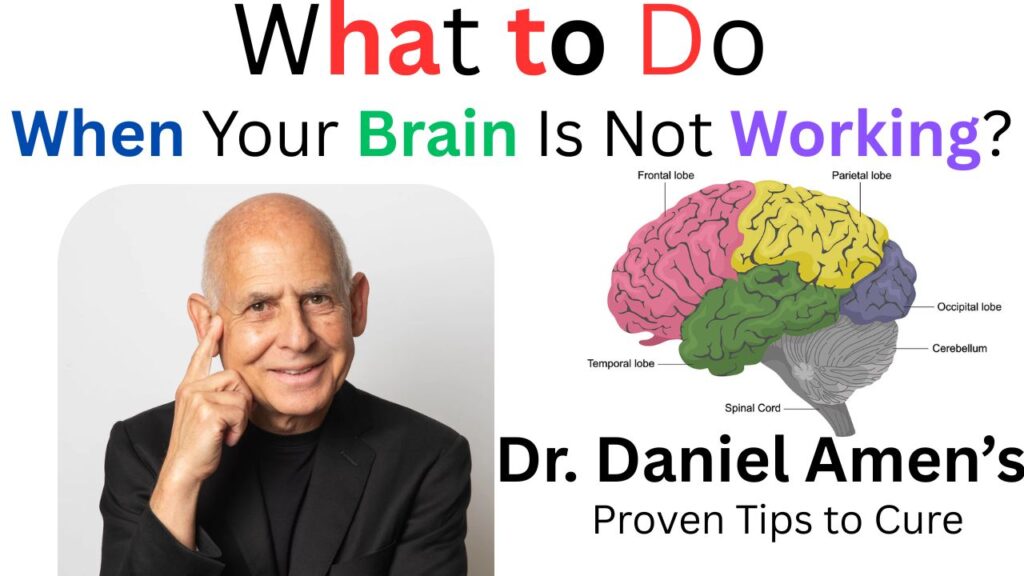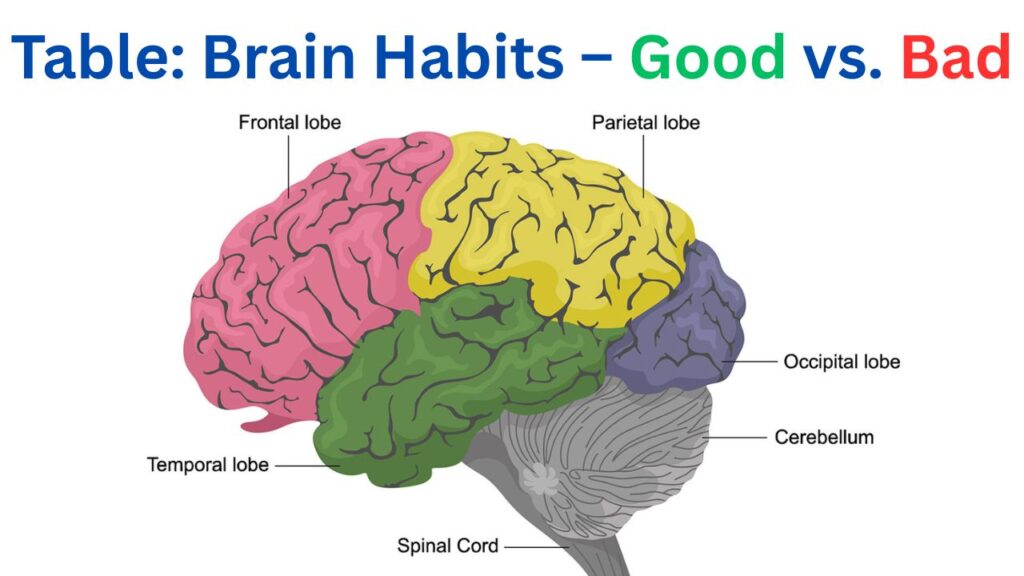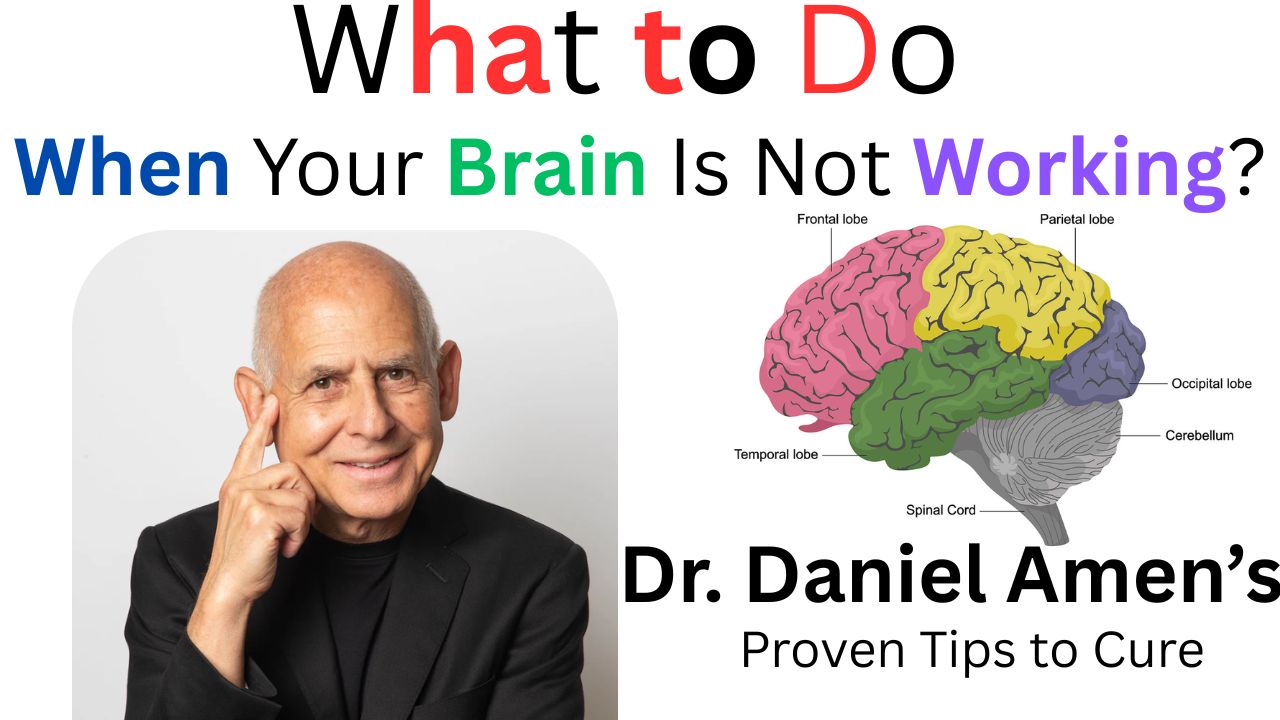What to do when your brain is not working? It’s a strange question, but it could be one of the most important questions you ever ask. Your brain runs your life. It’s the boss of your thoughts, your feelings, your moods and how well you are able to focus on what you want to do. It makes all the difference in whether you can remember where you put your keys or whether you feel optimistic and positive even when life is tough. It’s involved in how quickly and deeply you learn new things. Even how long you live: People with more education have longer lives than people with less.
But here’s the scary truth: Many of us are likely to be damaging our brains every single day with poor lifestyle choices — such as lackluster diets, inadequate sleep, excessive scree-time and stress. That’s when they begin to wonder: “Why do I feel like there is something wrong with my brain?”
The good news? Leading head health experts, like Dr. Daniel Amen and world health organizations such as the World Health Organization (WHO) and Mayo Clinic have demonstrated that you can train your brain to be healthier, stronger and happier at any age. This blog will walk you through what to do when your brain is not working and how to fix it.
Table of Contents
Why Your Brain Matters More Than You Think
Your brain accounts for only 2% of your body weight, but it uses a whopping 20% of your calories. The brain, could have an impact on how you think, learn dream and interact with others, Harvard Medical School reports.
A healthy brain means:
Better decision-making
Stronger relationships
Sharper memory and focus
More happiness and resilience
But your whole world suffers when your brain isn’t working right:
Anxiety or depression increases
Memory and focus decline
Relationships become stressful
Productivity at work drops
In other words: Your brain suffers, so does your life.
Signs Your Brain May Be Working Against You
The National Institute of Mental Health (NIMH) says that brain problems can begin to show up subtle and may not become what we would consider big problems until they progress later. Watch out for these red flags:
- Constant negative thinking or self-criticism
- Trouble focusing or paying attention
- Forgetfulness in daily tasks
- Sleep problems (insomnia, waking up tired)
- Irritability or sudden mood swings
- Booze, bubbles or social media to “feel better.”
If you have a couple of them and then you just snowball into the rest, then you can start to say to yourself: “Why do I feel like there is something wrong with my brain?”
Everyday Habits That Damage the Brain

Dr. Amen calls these “brain enemies.” Some common ones include:
Bad diet → Bludgeon brain cells with too much sugar, junk food, processed snacks.
Sleeping too little → The Mayo Clinic states that adults require 7-9 hours of sleep for brain repair.
Too much screen time → Doomscrolling or gaming overstimulates dopamine, which makes you feel tired.
Alcohol & drugs → small amounts can reduce brain volume.
Chronic stress → Cortisol kills the hippocampus (the part of your brain you use for memory and learning).
What to Do When Your Brain Is Not Working

Here’s what experts recommend if you feel your brain is “offline”:
1. Feed Your Brain Smartly
- Eat more omega-3 fatty acided foods (salmon, walnuts and flaxseeds).
- Add some red & green (antioxidants prevent your brain from aging).
- Scale back on sugars, fried foods and processed snacks.
2. Sleep Like Your Brain Depends on It (Because It Does!)
- Keep a regular sleep routine.
- No caffeine or screens before bedtime.
- Your bedroom should be dark, cool and quiet.
3. Move Your Body Daily
- WHO they recommend at least 30 minutes of exercise.
- Movement — which could mean walking, dancing or doing yoga — lifts memory and increases the blood flow in your brain.
4. Practice Accurate Thinking
Rather than engage in “toxic positivity,” Dr. Amen recommends accurate thinking — challenging unrealistic thoughts and replacing them with facts.
- Example: Rather than “I’m broken,” tell yourself, “I’m off right now, but I can improve my brain health with the appropriate steps.”
5. Drip Dopamine, Don’t Dump It
Quick fixes — junk food or binge-scrolling — “dump” dopamine and then leave you empty.
Slow, steady rewards like mastering a new skill, working out or writing in a journal of gratitude also. drip dopamine, offering you a little longer-term lift.
These little, steady actions are what to do when your brain is not working.
Real-Life Example
One of Dr. Amen’s patients, a 15-year-old boy who presented with anger, depression and poor grades. Scans of their brains showed previous concussions and unhealthy lifestyle habits. Once he made changes — to improve his sleep, eat for brain health, exercise daily and make a practice of gratitude — his mood and focus had dramatically improved.
This case demonstrates that, with the right habits, the brain can recover and flourish at any age.
Table: Brain Habits – Good vs. Bad

| Good Brain Habits | Bad Brain Habits |
| 7–9 hours of quality sleep | Staying up late, scrolling endlessly |
| Omega-3 rich foods | Junk food & sugary snacks |
| Daily exercise | Sedentary lifestyle |
| Gratitude journaling | Negative self-talk |
| Meditation & mindfulness | Chronic stress & multitasking |
Key Takeaways
Your brain is in charge of your happiness, focus and relationships.
Unhealthy behaviors (bad diet, poor sleep, stress) damage it quietly.
If you’re wondering, “Why do I feel like there is something wrong with my brain?”, it’s time to take action.
It is good to show you exactly what to do when your brain is not working, by means of small everyday adjustments—more sleep, better food and exercise, and truer thinking.
Science shows the brain can repair itself with the right care.
Conclusion
Your brain is your best friend — or not. The choice is yours. Or as Dr. Daniel Amen writes in his best-selling book of that title, “Change your brain, change your life.”
Take a little step, today: Eat smarter, sleep deeper, move more, think more clearly. These decisions will over time enable you to build a healthier, happier brain that is working for — not against — you.
References
- World Health Organization – Brain Health
- Mayo Clinic – Sleep and Health
- Harvard Health – Cognitive Fitness
- National Institute of Mental Health (NIMH)
- Amen Clinics – Dr. Daniel Amen
Based on Dr. Daniel Amen (Psychiatrist, Founder of Amen Clinics).
Hello everyone, I am Md Habibullah Sheikh a registered Pharmacist with 6 years of experience in Clinical, Community, and corporate pharmacy. I have worked for HLFPPT, Gauripur Hospital, Reliance Retail Pharma (Netmeds) as well and Now working for Zota Health Care as a Senior Pharmacist. We, In Health Easy Fitness, share trustable health education, tips & awareness to help people find the best health choice. Always talk to a doctor before taking any kind of Health issue Decision.


